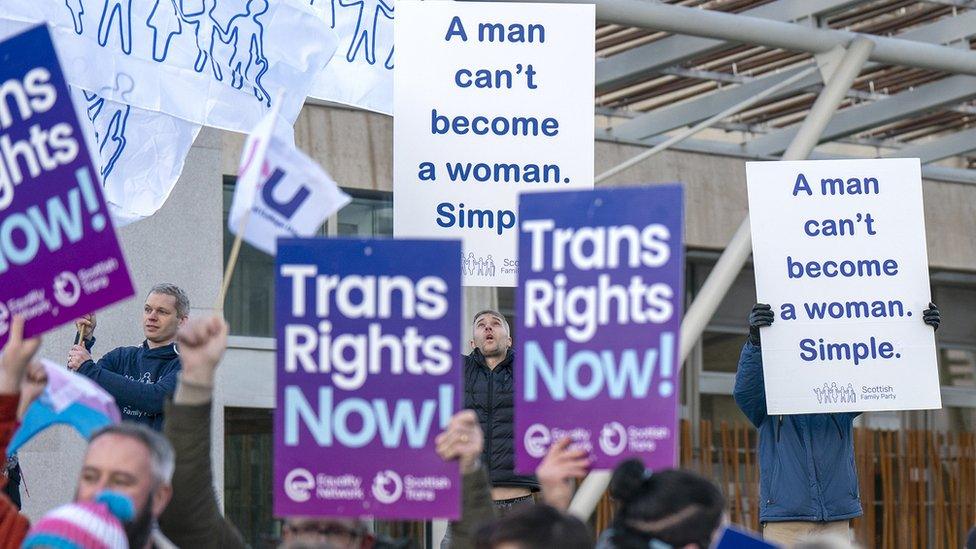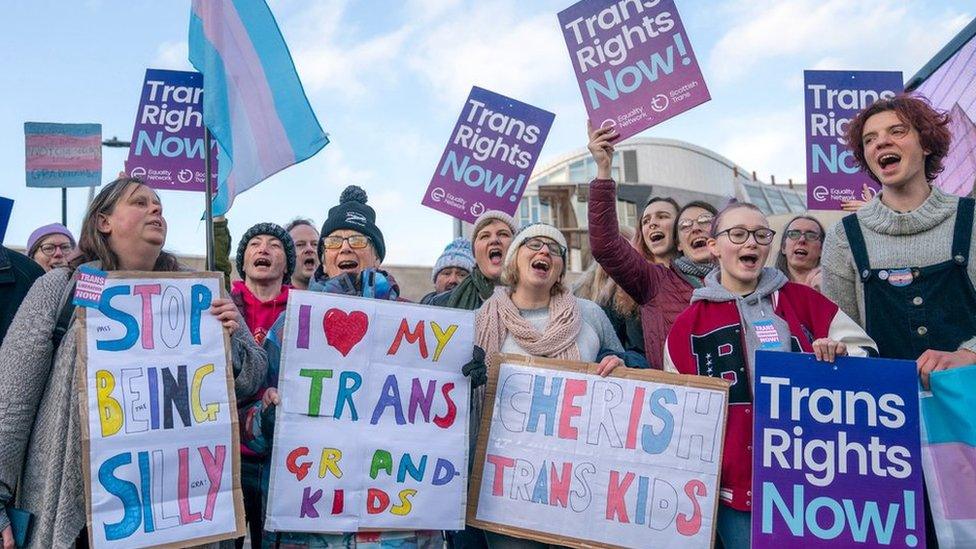Gender law impasse can be broken - Sarwar
- Published
Anas Sarwar thinks the gender law impasse can be unlocked if detailed guidance is issued
The standoff between the UK and Scottish governments over gender recognition reform can be resolved, according to Scottish Labour.
Anas Sarwar said there were "challenges" over the impact on single-sex spaces but said the UK government's blocking of the law was wrong.
Instead, he called on the Equalities and Human Rights Commission to help resolve concerns over implementation.
Nicola Sturgeon said she would do "everything" to defend the legislation.
The UK government has used a Section 35 order to block the Gender Recognition Reform (Scotland) Bill becoming law on grounds it would have an "adverse impact" on how equalities laws operate elsewhere in the UK.
First Minister Nicola Sturgeon disputes that and told the BBC's Sunday with Laura Kuenssberg it was an "outrageous" veto designed to "stoke a culture war".
Asked if the Scottish government would seek a judicial review, she replied: "I've already said we will do everything to stand up for and defend the legislation."
Scottish Labour backed the bill in the Scottish Parliament vote last month, although it put forward a number of amendments.
Mr Sarwar told The Sunday Show on BBC One Scotland: "What we were voting on was the process of obtaining a GRC [gender recognition certificate] and I think it was right to remove inhumanities in that process".
But he said there was "still work to do" to address challenges around the protection of single sex spaces.

The Scottish Parliament debate on gender recognition reform in December saw protests from campaigners with opposing viewpoints
He said he disagreed with the UK government's blocking of the legislation, and he did not believe the courts were the right place to settle the issue.
Instead, he said the Equalities and Human Rights Commission should be instructed to issue guidance on what the legislation means in practice, both in Scotland and across the UK, for people working in settings like schools, leisure centres, prisons or refuges.
"How do we ensure guidance is in place so people feel they have the protection of the law to protect single-sex spaces and exclude people if they choose to do so in appropriate circumstances based on their biological sex, their gender or their acquired gender," he said.
The Scottish Conservatives said it was disingenuous for Anas Sarwar to now say there were legitimate concerns about single-sex spaces when his party had voted for the bill.
Party chairman Craig Hoy said: "The Scottish Labour leader, in his own words, 'promoted and supported' the bill by whipping his MSPs to vote for it."
Meanwhile, a second former Supreme Court judge has said he believes the Scottish government is unlikely to succeed in the courts.
Writing in the Sunday Times, external Lord Sumption said the bill could lead to UK citizens having a "different legal gender in different parts of the UK".
"This poses serious legal and practical problems for employers and public authorities operating on a UK-wide basis," he wrote.
Another former Supreme Court justice Lord Hope recently expressed similar views on the prospect of a successful legal challenge.
- Published8 December 2023

- Published22 January 2023
